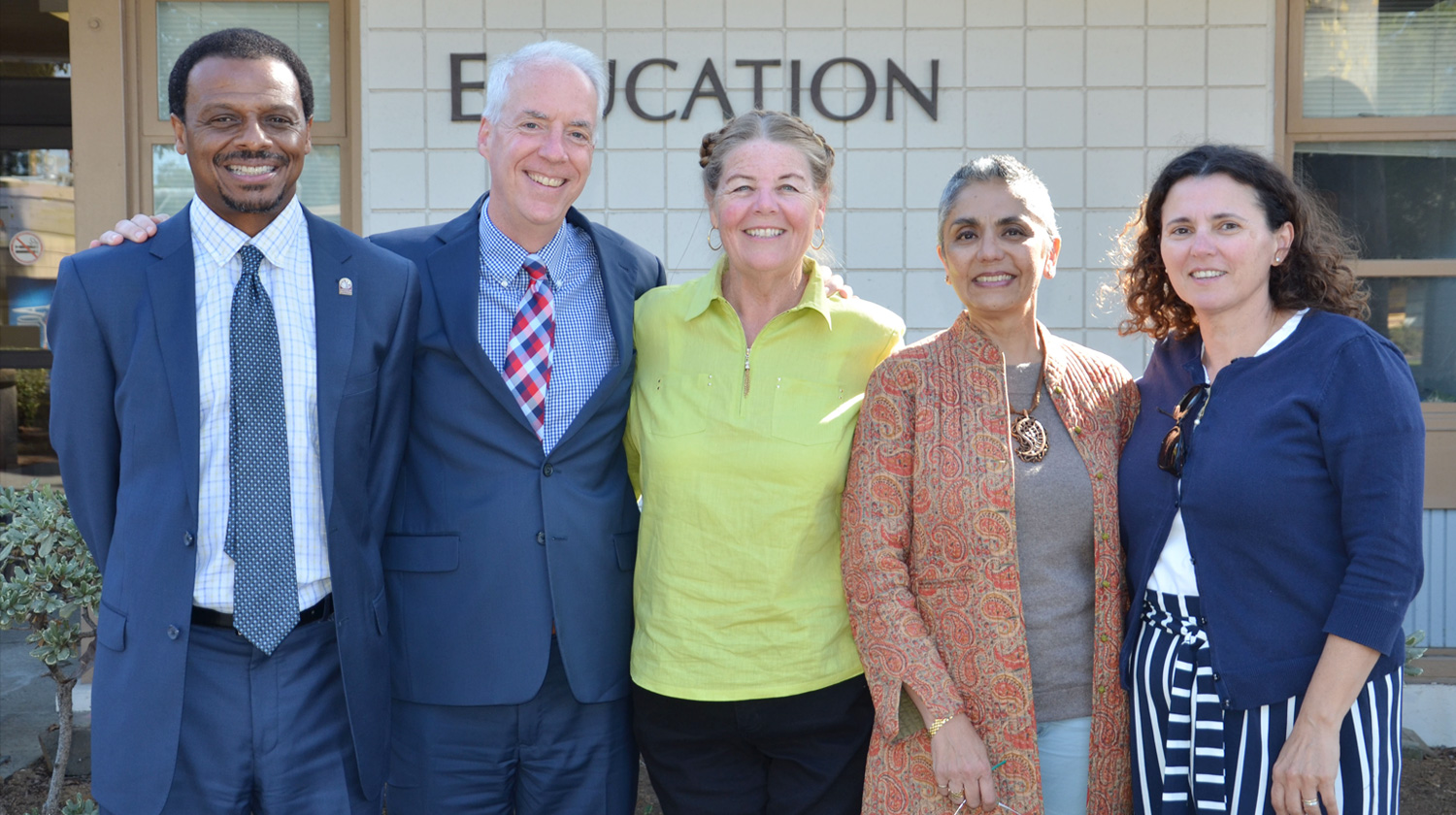
When Katie Johnson took a position as a university staff psychologist five years ago, job security meant little more than an annually renewable employment contract.
That began to change earlier this year, when fellow staffers, college leaders, and union officials where she works – California State University-Dominguez Hills, located in Los Angeles County – reconsidered the role that psychologists play on campus. To encourage them to stay longer and to improve the way staffers are treated, the university gave her and others a shot at something contingent faculty members rarely experience: a tenure-track position.
Johnson, who works in the university’s student health center as a counselor, can now look forward to the chance to apply for tenure after her sixth year full time on the job.
“Some of our psychologists really advocated for this,” she says. “They stressed the importance of having qualified staffers on hand for the sake of consistency and to better serve our students.”
With help from the California Faculty Association – a labor union that represents adjunct faculty members – and support from the university’s leadership, six brand-new tenure-track positions were created for psychologists. Four people are to be hired from the existing staff, with two more made available for outside applicants.
The move was the result of a need to both keep and attract more psychologists.
“The counseling office told us they were terribly understaffed,” says Kirti Sawhney Celly, a professor of marketing and management at Dominguez Hills, and leader of a campuswide task force on best practices for nontenured faculty. “We knew we had to do something to meet students’ needs.”
The concept of moving more adjuncts to protected positions has begun to spread across campus, Celly adds. Besides giving psychologists, who were treated like contingent faculty, the chance to acquire tenure, the university features two non-tenure-track faculty task forces.
These days, the task forces are devising ways to put more adjunct faculty members on the road to full-time and secure jobs, as well as to increase the pay of adjuncts generally.
“We’re trying to find lecturers who may be eligible for tenure-track jobs,” Celly says. “It’s possible that we have many part-time lecturers who actually work full time when you factor in that they’re teaching at more than one campus at the same time. They might prove eligible for these new positions.”
Adjuncts at the university see such moves as the beginning of a sea change on campus.
“The benefits haven’t really kicked in yet, but these efforts have begun to change how people think,” says Pamela Robinson, a lecturer in the university’s graduate education department for the past 25 years. “People are framing things differently during meetings. It’s a really good first step.”
The college’s efforts haven’t gone unrecognized. Dominguez Hills was a co-winner – along with Harper College, a two-year institution in Illinois – of the inaugural Delphi Awards.
Created by the Delphi Project on the Changing Faculty and Student Success, a research program based at the University of Southern California’s Pullias Center for Higher Education, the awards (of $15,000 each) are given to colleges that develop solid programs that help contingent faculty improve as teachers or improve their working conditions.
For her part, Johnson looks forward to a chance to advance her career – and to deepen her relationship with the university.
“This creates some built-in commitment, and it’s a mutual commitment,” she says. “I was really excited when I heard about this. The tenure track is such a desired place to be. I was very happy the university decided to support and appreciate me in this way.”
Source: Chronicle of Higher Education